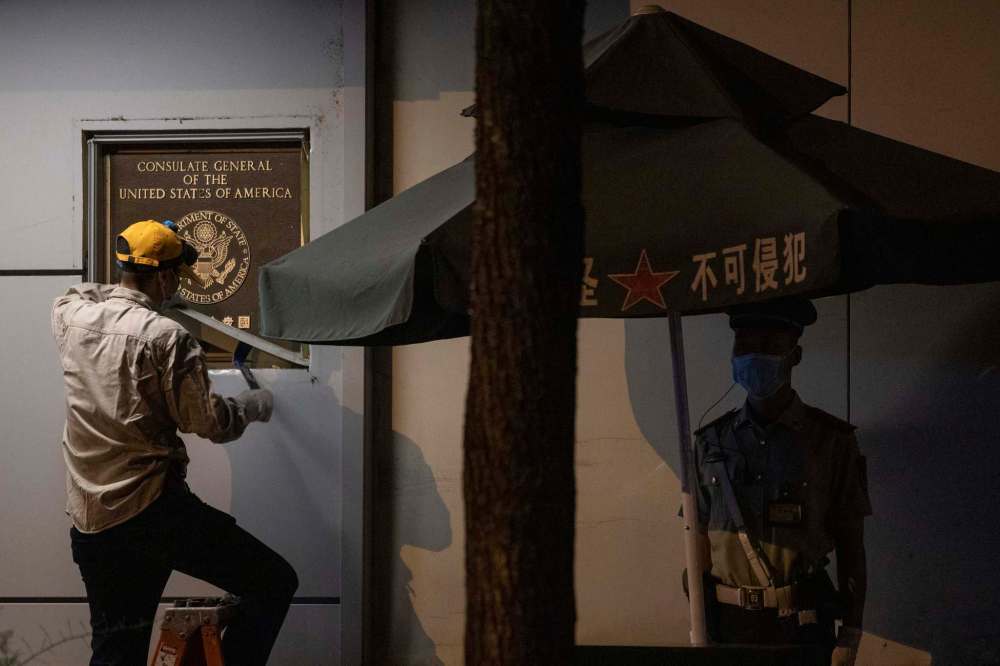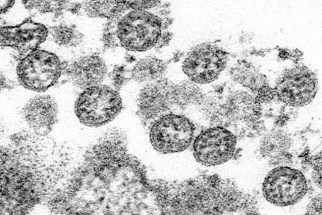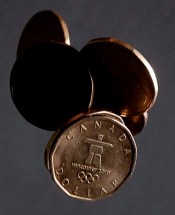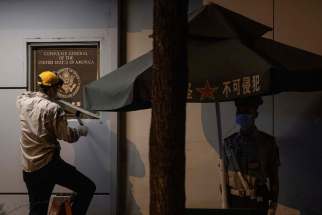U.S., China slam diplomatic doors
Read this article for free:
or
Already have an account? Log in here »
To continue reading, please subscribe:
Monthly Digital Subscription
$0 for the first 4 weeks*
- Enjoy unlimited reading on winnipegfreepress.com
- Read the E-Edition, our digital replica newspaper
- Access News Break, our award-winning app
- Play interactive puzzles
*No charge for 4 weeks then price increases to the regular rate of $19.95 plus GST every four weeks. Offer available to new and qualified returning subscribers only. Cancel any time.
Monthly Digital Subscription
$4.99/week*
- Enjoy unlimited reading on winnipegfreepress.com
- Read the E-Edition, our digital replica newspaper
- Access News Break, our award-winning app
- Play interactive puzzles
*Billed as $19.95 plus GST every four weeks. Cancel any time.
To continue reading, please subscribe:
Add Free Press access to your Brandon Sun subscription for only an additional
$1 for the first 4 weeks*
*Your next subscription payment will increase by $1.00 and you will be charged $16.99 plus GST for four weeks. After four weeks, your payment will increase to $23.99 plus GST every four weeks.
Read unlimited articles for free today:
or
Already have an account? Log in here »
Hey there, time traveller!
This article was published 28/07/2020 (1991 days ago), so information in it may no longer be current.
The mutual closing of consulates by the United States and China will have little practical effect on daily life in the two countries and it need not lead to a further round of hostile gestures. It sends a message of U.S. irritation with Chinese snooping in the U.S. and Chinese irritation with U.S. interest in Tibet.
For Canadians who count on improved U.S. relations with China, however, the wait may be long.
The U.S. State Department ordered China to close its Houston embassy last Friday, and this was done. U.S. government officials were a bit vague about the reasons for this highly unfriendly gesture, but they hinted it had something to do with officials at the consulate directing informants to dig up secrets about the search for a coronavirus vaccine.
Houston is an important centre of U.S. medical research. China is trying hard to come up with a coronavirus vaccine ahead of any other country, as a matter of national pride and commercial advantage. The U.S. strenuously objects to Chinese efforts to discover U.S. scientific research findings, which can deprive U.S. firms of the profits they can earn from their own discoveries.
U.S. officials said in briefings last week that they recognize all consulates gather information. The Houston consulate, however, had crossed a line and the U.S. needed to show it would not tolerate what had been done — though they declined to say what that was. The Chinese foreign ministry presumably knows exactly what was done and is now under notice not to do it again.
China, in turn, complained that the U.S. had carried out an unprecedented escalation of tensions between the two countries. It ordered closure of the U.S. consulate in Chengdu (Winnipeg’s sister city in a time of closer Canada-China relations), and that closure was completed on Monday.
The Chengdu consulate was the centre for U.S. activities in Tibet, and a source of annoyance for China. China annexed Tibet in 1950, but many Tibetans have resisted China’s sometimes brutal attempts to wipe out Tibetan culture and traditions. The Tibetan dream of independence from China enjoys widespread support in the West, especially in the U.S. — much to China’s annoyance. Closure of the Chengdu consulate reflects that annoyance.

China will continue snooping on U.S. medical research efforts, with or without a Houston consulate. Americans interested in Tibet will continue encouraging Tibetan nationalism, with or without a Chengdu consulate.
In that sense, the episode makes little practical difference. Both sides have made their symbolic points, expressed their annoyance and gratified their nationalistic supporters.
China, however, still has consulates in New York, Chicago, San Francisco and Los Angeles. The U.S. still has consulates in Guangzhou, Shanghai, Shenyang and Wuhan. This is not a breaking of diplomatic relations nor even a threat to move in that direction. The two countries, though they are flinging accusations at each other on numerous of subjects, are still bound closely together by trade, though the virus epidemic has curtailed tourism and migration.
Canadians are still waiting for the thaw in China-U.S. relations that might open the way for release of the two Canadians, Michael Spavor and Michael Kovrig, who still languish in Chinese prisons on account of a U.S.-China quarrel over the telecom firm Huawei Electronics. The bout of consulate closings suggests any such thaw still lies far in the future.









